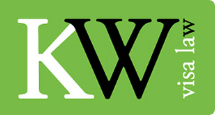Tips for Collecting Evidence of Extraordinary Ability
Press Articles About You & Scholarly Publications By You
Press releases republished verbatim, self-published articles, and paid articles placed by you or your employer do not count as press coverage about you or your work, nor as scholarly publications authored by you. Undated copies of articles, or copies that do not show the name of the periodical, do not prove the article was published.
Primary evidence: original or legible photocopy of the article showing:
- Name of the periodical (should indicate whether online or print)
- Date of publication, and issue or edition number
- Headline or title of the article
- Author’s by-line
- Complete contents of the article, not just excerpts or highlights
- Notarized English translation with translator’s signed oath of accuracy, if original article is in another language
- If item is only a photo, include name & date of publication, photo caption & photographer credit
- Scholarly or scientific journal articles should be authorized reprints or preprints
- Articles that do not mention you by name will be given less weight than those that do
- Printouts from online sources should show URL & date, preferably from publisher’s website
- Do NOT highlight relevant text: this makes it illegible to USCIS – underline only
Secondary evidence:
- circulation/readership figures, or unique monthly visitors for online publications
(publisher’s media kit or independent published source) - readership demographics
- impact factor & publication standards for peer-reviewed scientific or academic journals
Awards For Extraordinary Ability
Awards should be granted by name to an individual, or a team of individuals, not to a company or project (those may be used separately as evidence of a leading or critical role for distinguished events or productions). Only professional awards count. Awards limited by their own terms to students, or to internal candidates at one company, generally will not qualify. Local or regional awards will be given little weight in the O-1 context & none in the EB-1 context. Qualifying awards are those open to candidates at a national or international level.
Awards to a team, group or company are given significantly less weight, even when accompanied by proof of your role in that team/group/company. Group awards may be counted under a separate criterion, as proof of your leading or critical role for a distinguished event, production or institution.
Secondary evidence:
- award eligibility & criteria
- identity & renown of judges & past winners
- how candidacy is obtained: Can you apply for yourself, or must you be nominated?
- rarity of the award
- press coverage of the award
- prize money or other benefits attached
- reputation of the awarding body
Memberships For Extraordinary Ability
Membership in associations that require achievement of members does not cover pay-to-join professional societies. Along with proof of individual membership, include evidence of the organization’s membership eligibility criteria, and the screening, application, nomination, and/or juried peer review process for selection and admission of members. If there are different classes or levels of membership, include evidence of the distinctions required for the level granted.
Leading or Critical Role
These criteria are complex, and require proof that the organization, establishment, production or event is distinguished, and that your past role(s) were leading or critical, and also that your prospective roles in a similar capacity will be leading or critical. This is an exercise in effectively connecting the dots.
High Compensation in Relation to Others in the Field
Contracts, W-2s or 1099s, paystubs, bonus checks and other direct evidence of payment win less than half the battle under this criterion: those are the evidence of the compensation offered and paid to you, but they must be matched with multiple salary surveys covering the relevant occupations and geographic areas. Supplemental expert testimony may be presented in the form of letters from economists, analyzing data on the field or occupation in depth, and from executive search and placement professionals who have experience with placing top-tier workers in the relevant industry. Any expert letters must be accompanied by the writer’s resume, CV, or bio.










